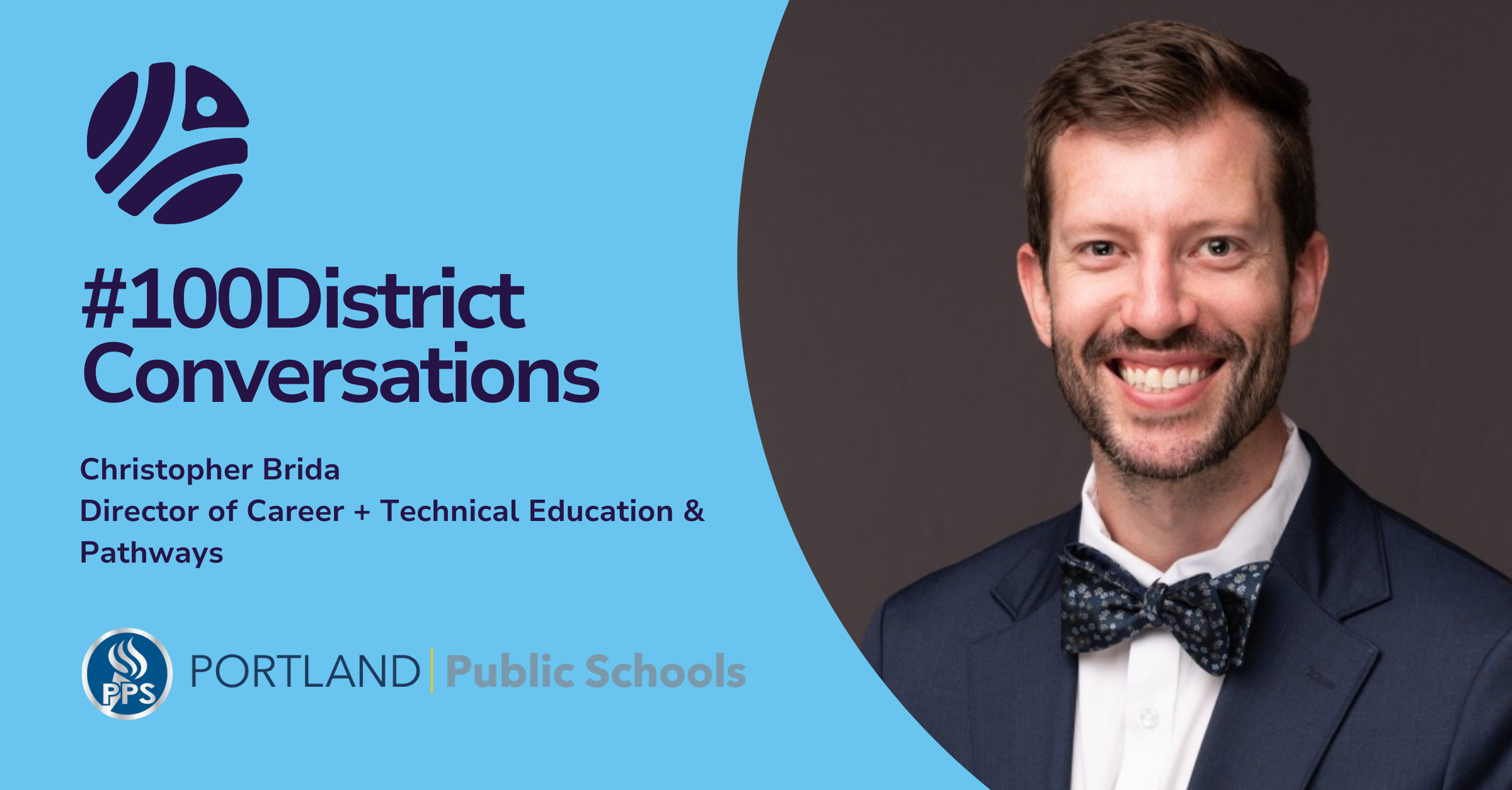#66 Christopher Brida

The pace at which career and technical education (CTE) pathways are advancing and becoming increasingly aligned to high-demand workforce skills and careers is dizzying. It's important to elevate the professional learning strategies and challenges that CTE leaders face, as they are often unique. This is why I am grateful to Dan Kelley for connecting me to Christopher Brida, Director of Career and Technical Education and Pathways for Portland Public Schools in Oregon as conversation #66 of #100DistrictConversations.
"Three years into leading career and technical education across our district's 45,000 students and 11 high schools, I am constantly energized by the evolution happening in this field. We now offer 81 programs of study spanning all 16 recognized career clusters from the National Career Clusters Framework from Advance CTE – some available at every high school, others specialized to single campuses.
What excites me most is how we are approaching professional learning through a design thinking lens. As someone pursuing doctoral work in boundary spanning leadership, I am fascinated by the intersection of education systems and industry partnerships. Our CTE teachers bring incredible industry expertise but often need pedagogical support, so we have developed a dual approach to professional development that is specific to the needs of CTE systems, where project durations are longer in scope and require different practices than traditional classrooms.
First, we address the unique responsibilities CTE teachers carry – program management, recruitment, budgeting, and sustainability planning. Second, we leverage Perkins funding to pull teachers from classrooms for specialized collaboration around their specific pathways. We are being very intentional about who participates, when, and how often because Oregon is one of only a few states that does not fund CTE. We rely heavily on grants and partnerships to both support programs and shift perceptions.
Changing the narrative has been a key challenge. Too many people still see CTE as pushing students from marginalized backgrounds into 'messy jobs' without futures. The reality is, these pathways lead to high-earning careers requiring deep interdisciplinary learning.
The landscape is changing rapidly: I heard from Kevin J. Fleming at the Association for Career and Technical Education conference that associate’s degrees now often outpace four-year degrees in earning potential. Students are earning industry credentials and entering the workforce directly rather than automatically continuing to four-year institutions. This transformation requires us to think systemically about professional learning, ensuring every experience moves our system forward while turning teachers into experts who learn from each other across our diverse CTE pathways.
The AI revolution is reshaping everything. The National Career Clusters Framework identifies AI as a cross-cutting skill across all pathways. We have a teacher on special assignment who acts as our AI expert, and we are thinking deeply about AI not just as a tool, but as essential to workforce preparation. I am using AI myself to amplify my networking and relationship-building skills, moving beyond traditional one-school-to-one-company partnerships toward system-level industry collaborations."
If you're a district leader or know of a district leader who should be featured in the #100DistrictConversations initiative, please use this nomination form.
